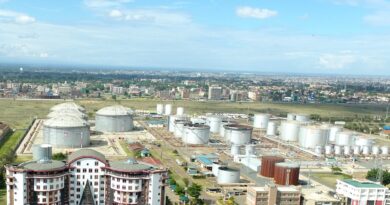Why Kenyans are set to pay more for fuel

Kenyans are set for a fresh increase in fuel prices after lawmakers approved an upward review of the Road Maintenance Levy charged on the product.
The National Assembly’s Committee on Delegated Legislation, chaired by Ainabkoi MP Samuel Chepkong’a has approved a key legal notice aimed at increasing the levy.
In a meeting with officials from the State Department of Roads, led by Principal Secretary Joseph Mbugua, committee members endorsed the Road Maintenance Levy Fund (Imposition of Levy) Order, 2024.
The approved Legal Notice No. 9 of 2024 which proposes raising the Road Maintenance Levy Fund rate by Ksh10 to Ksh28 per liter of petrol and diesel.
It is however important to note that the government has since July already increased the levy by Ksh7 to Ksh25 per liter up from the previous rate of Ksh18.
During the review of the legal notice, Chepkong’a and Committee Vice Chairperson Gichugu MP Robert Gichimu expressed concerns about the potential impact on fuel prices.
“Considering the tough economic times, it would be inconsiderate of us to approve an order that could lead to a hike in fuel prices
Ainabkoi MP Samuel Chepkong’a
Gichimu echoed these concerns, adding that any increase in fuel prices would drive up the cost of essential goods and living expenses, which he described as “undesirable during the current difficult times.”
In response, Roads Principal Secretary Joseph Mbugua assured committee members that the proposed levy increase would not affect pump prices for petrol and diesel.
“We are confirming to Kenyans that there will be no increase in the price of fuel. We have measures in place to raise the levy without pushing fuel costs above current levels,” said Eng. Mbugua.
PS Mbugua was accompanied by Director Generals Rashid Mohamed (Kenya Roads Board), Silas Kinoti (Kenya Urban Roads Authority), Kung’u Ndung’u (Kenya National Highways Authority), and Philemon Kandie (Kenya Rural Roads Authority).
He explained that the state regulates the retail price of petroleum products, with pricing based on import costs. Currently, the Road Maintenance Levy Fund collects about Ksh80 billion annually — a figure unchanged since 2016 and is insufficient for the country’s growing road maintenance needs.
Despite the fact that the road network has expanded from 161,451 kilometers in 2016 to 239,122 kilometers in 2024, and economic conditions have changed, the road maintenance levy has remained the same
Roads Principal Secretary Joseph Mbugua
“That’s why we are seeking a revision of the levy upwards,” PS Mbugua added, justifying the proposed increase.
But increasing the levy will further increase the cost of the product, which is already heavily taxed and attracts a total of nine charges and levies.
The others are the Railway Development Levy (RDL), Value Added Tax (VAT), excise duty, and Anti-adulteration levy are also charged on the product.
Other taxes incurred on the product are Petroleum Development Levy, Merchant Shipping Levy, Petroleum Regulatory Levy and Import Declaration Fee.
info@theenergyreview.com
Discover more from THE ENERGY REVIEW
Subscribe to get the latest posts sent to your email.


